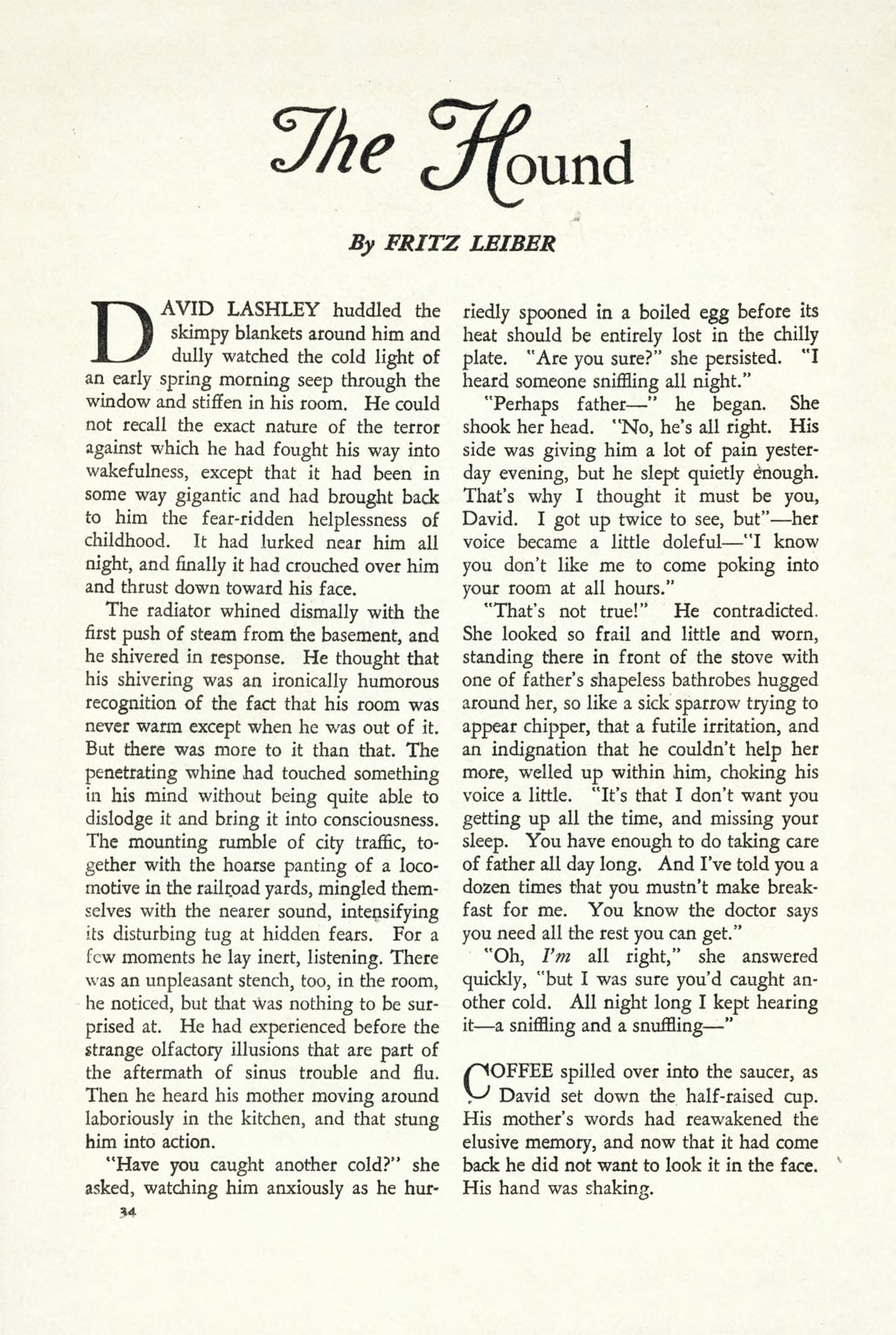The Hound
By Fritz Leiber
David Lashley huddled the skimpy blankets around him and dully watched the cold light of an early spring morning seep through the window and stiffen in his room. He could not recall the exact nature of the terror against which he had fought his way into wakefulness, except that it had been in some way gigantic and had brought back to him the fear-ridden helplessness of childhood. It had lurked near him all night, and finally it had crouched over him and thrust down toward his face.
The radiator whined dismally with the first push of steam from the basement, and he shivered in response. He thought that his shivering was an ironically humorous recognition of the fact that his room was never warm except when he was out of it. But there was more to it than that. The penetrating whine had touched something in his mind without being quite able to dislodge it and bring it into consciousness. The mounting rumble of city traffic, together with the hoarse panting of a locomotive in the railroad yards, mingled themselves with the nearer sound, intensifying its disturbing tug at hidden fears. For a few moments he lay inert, listening. There was an unpleasant stench, too, in the room, he noticed, but that was nothing to be surprised at. He had experienced before the strange olfactory illusions that are part of the aftermath of sinus trouble and flu. Then he heard his mother moving around laboriously in the kitchen, and that stung him into action.
"Have you caught another cold?” she asked, watching him anxiously as he hurriedly spooned in a boiled egg before its heat should be entirely lost in the chilly plate. "Are you sure?” she persisted. "I heard someone sniffling all night.”
"Perhaps father—” he began. She shook her head. "No, he’s all right. His side was giving him a lot of pain yesterday evening, but he slept quietly enough. That’s why I thought it must be you, David. I got up twice to see, but”—her voice became a little doleful—"I know you don’t like me to come poking into your room at all hours.”
"That’s not true!” He contradicted. She looked so frail and little and worn, standing there in front of the stove with one of father’s shapeless bathrobes hugged around her, so like a sick sparrow trying to appear chipper, that a futile irritation, and an indignation that he couldn’t help her more, welled up within him, choking his voice a little. “It’s that I don’t want you getting up all the time, and missing your sleep. You have enough to do taking care of father all day long. And I’ve told you a dozen times that you mustn’t make breakfast for me. You know the doctor says you need all the rest you can get.”
"Oh, I’m all right,” she answered quickly, "but I was sure you’d caught another cold. All night long I kept hearing it—a sniffling and a snuffling—”
Coffee spilled over into the saucer, as David set down the half-raised cup. His mother’s words had reawakened the elusive memory, and now that it had come back he did not want to look it in the face. His hand was shaking.
34
